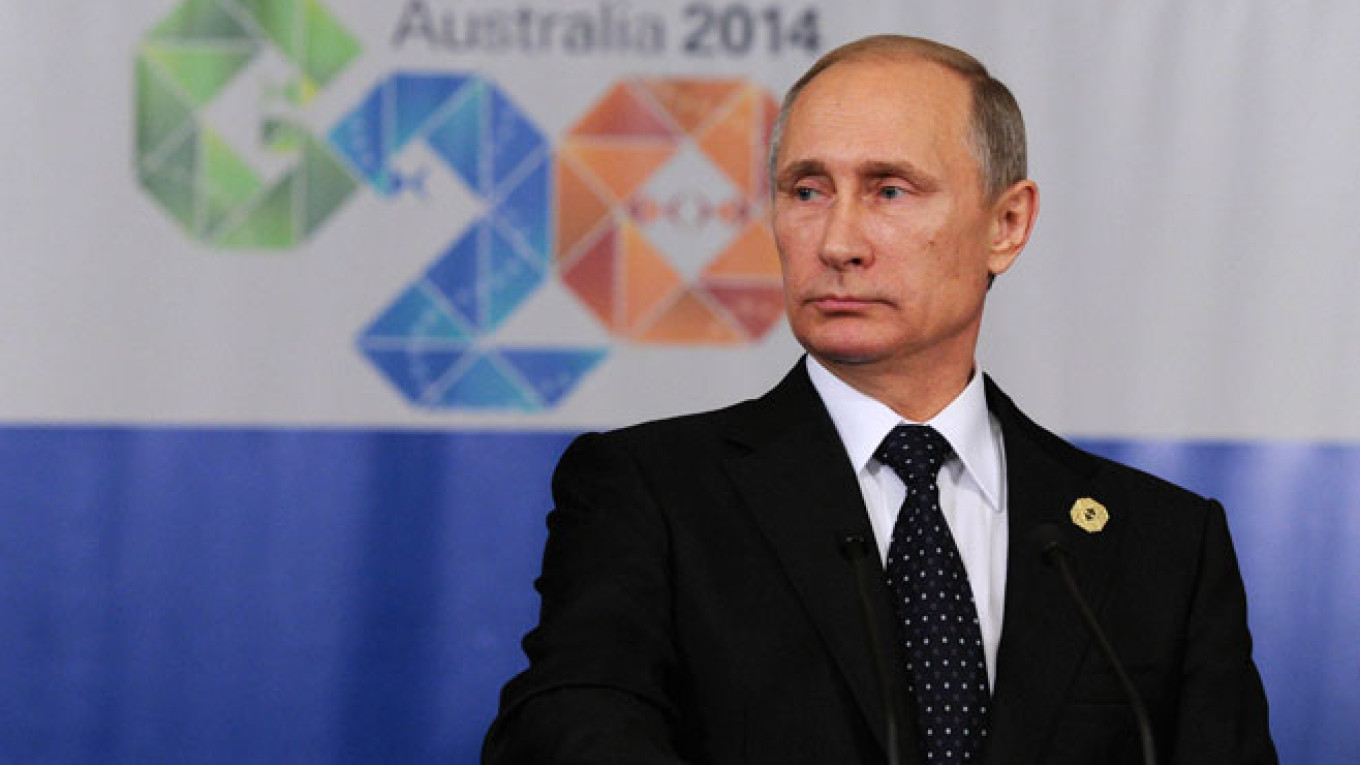Russia does not intend to demand early repayment of $3 billion that it lent to Ukraine last year, President Vladimir Putin said in an interview with German TV channel ARD, a transcript of which was released by the Kremlin on Saturday.
"If we do it [demand repayment] the whole financial system will collapse. We have already decided that we will not do it. We do not want to aggravate the situation," Putin said. "We want Ukraine to get on its feet at last."
ARD is broadcasting some comments on Saturday and the full interview on Sunday.
Under the terms of the loan, which Russian extended last December in the form of a purchase of Ukrainian Eurobonds, Russia can demand early repayment if Ukraine's debt exceeds 60 percent of its gross domestic product.
Putin also said that Russia's state-owned Gazprombank had the formal right to demand early repayment of $3.2 billion loans to Ukrainian energy company Naftogaz, but his remarks implied that it also would not do so.
Putin said that Western sanctions against Russian banks are harming Ukraine's economy, as Russian banks have extended $25 billion in loans to Ukraine.
"If our European and American partners want to help Ukraine, how can they undermine the financial base limiting our financial institutions' access to world capital markets? Do they want to bankrupt our banks? In that case they will bankrupt Ukraine," Putin said.
Despite the sanctions, which he said were causing losses to Russia, Putin said he was confident that Russia's economy would grow next year by 1.2 percent, with 2.3 percent growth in 2016 and 3 percent growth in 2017.
His comments were at odds with forecasts by the Russian Central Bank, which projects growth of 0-0.1 percent over the next two years.
"Of course we expect the situation to change for the better. Of course we expect the Ukrainian crisis to end," Putin said. "Of course we want to have normal relations with our partners, including in the United States and Europe."
A Message from The Moscow Times:
Dear readers,
We are facing unprecedented challenges. Russia's Prosecutor General's Office has designated The Moscow Times as an "undesirable" organization, criminalizing our work and putting our staff at risk of prosecution. This follows our earlier unjust labeling as a "foreign agent."
These actions are direct attempts to silence independent journalism in Russia. The authorities claim our work "discredits the decisions of the Russian leadership." We see things differently: we strive to provide accurate, unbiased reporting on Russia.
We, the journalists of The Moscow Times, refuse to be silenced. But to continue our work, we need your help.
Your support, no matter how small, makes a world of difference. If you can, please support us monthly starting from just $2. It's quick to set up, and every contribution makes a significant impact.
By supporting The Moscow Times, you're defending open, independent journalism in the face of repression. Thank you for standing with us.
Remind me later.


